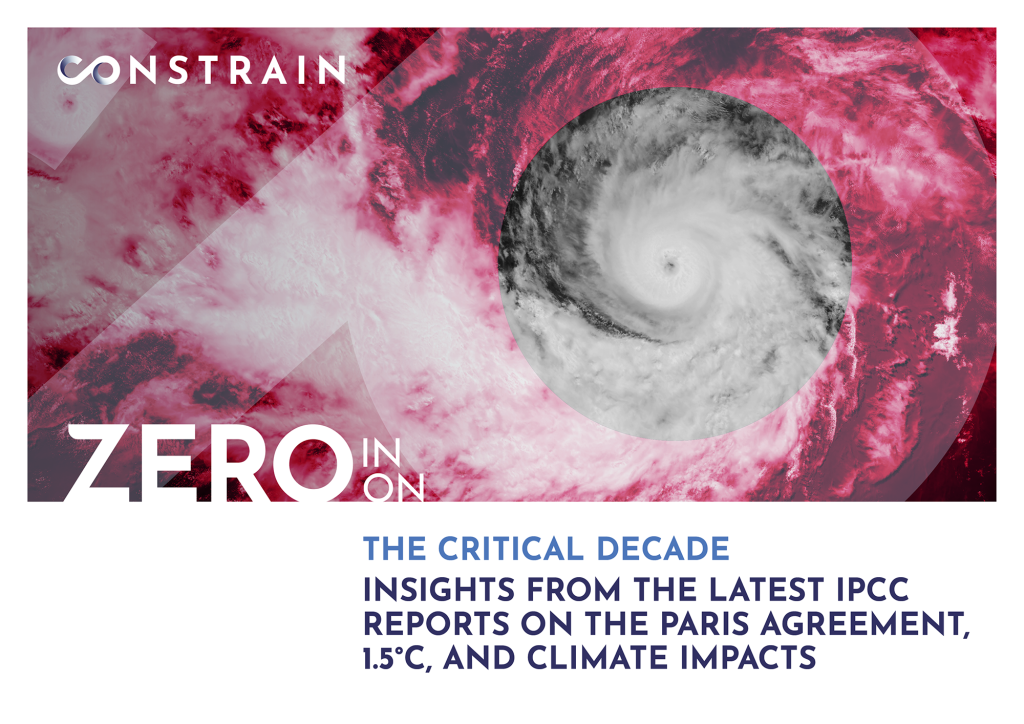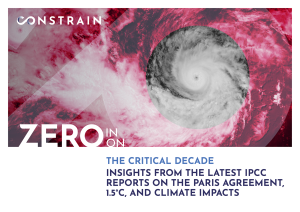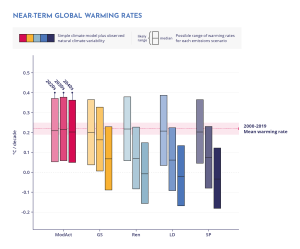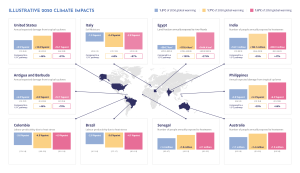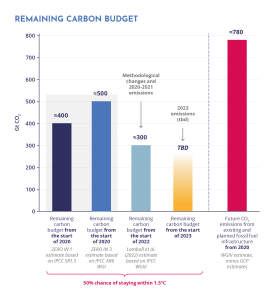The latest ZERO IN report from the CONSTRAIN project dives into the science set out in the recent Intergovernmental Panel on Climate Change assessments. It investigates what our climate future could look like by 2050, depending on whether we take action in line with the Paris Agreement, or decide to follow current national policies and plans which still largely lack the action and ambition needed to stop global warming.
This November sees world leaders gather in Egypt for the COP27 climate summit, at the end of a year hit by multiple climate disasters causing billions of dollars of damage.
Meanwhile, greenhouse gas emissions have bounced back above pre-pandemic levels, highlighting the huge gap between the words set out in international climate commitments and the scale of action needed to actually achieve the Paris Agreement.
The latest ZERO IN report from the CONSTRAIN project dives into the science set out in the recent Intergovernmental Panel on Climate Change assessments. It investigates what our climate future could look like by 2050, depending on whether we take action in line with the Paris Agreement, or decide to follow current national policies and plans which still largely lack the action and ambition needed to stop global warming.
The report stresses the need for deep, rapid, and immediate emissions reductions across all sectors, starting now and reaching net zero around mid-century, if we are to stand a good chance of keeping global warming within 1.5°C, in line with the Paris Agreement. It also shows how ambitious climate action could slow down and stop – or even reverse – global warming by 2050.
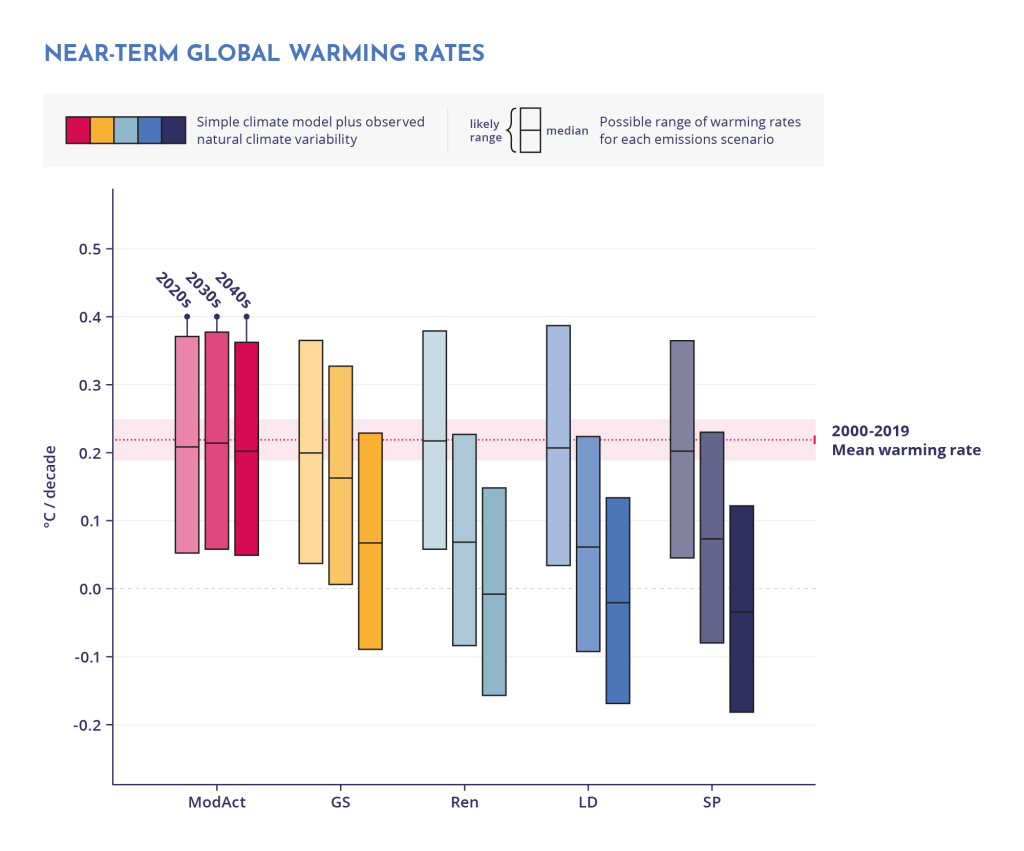
The report also shines a light on why 1.5°C is not just a number: every fraction of a degree matters. More temperature rise will lead to greater climate impacts and costs, from flooding in COP27 host country Egypt to cyclones, heatwaves and loss of productivity across the world. Limiting warming to 1.5°C will help to avoid the worst of it.
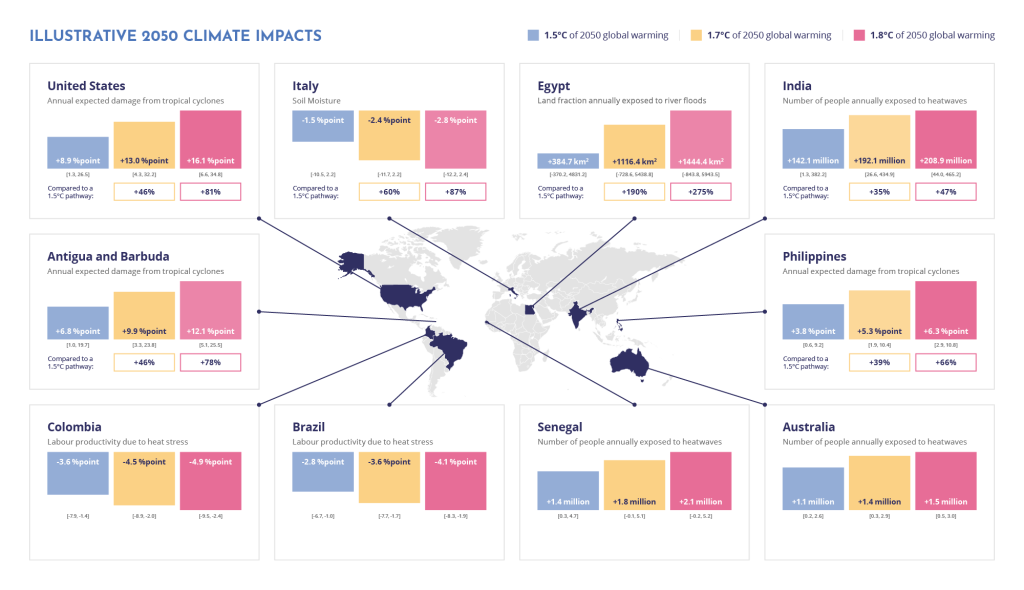
We are already well into this critical decade for climate, and every moment of delay makes it increasingly difficult to prevent the worst climate impacts from hitting the most vulnerable societies across the world.
Every tonne of greenhouse gas emissions counts. At COP27, world leaders can either watch as global warming continues to wreak havoc, or play their part in making this critical decade a true success for climate action.
CONSTRAIN

Project details
- Project title: “Constraining uncertainty of multi decadal climate projections” (CONSTRAIN)
- Funding scheme: Horizon 2020 (Grant agreement no. 820829)
- Duration: 4 years (1 July 2019 – 30 June 2023)
- Project coordinator: University of Leeds
- Project website: https://constrain-eu.org/

